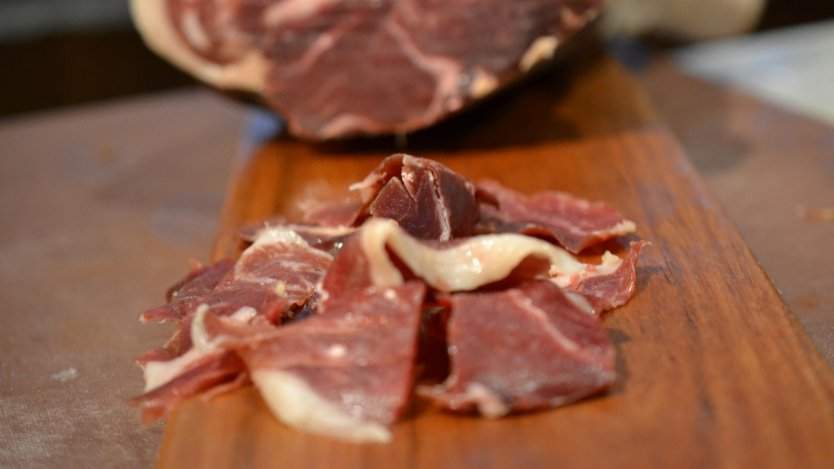Within the same hour that Carlene Deutscher's rifle goes off in a Saskatchewan forest, a delicious critter is butchered and made into a terrine at Vancouver’s Fable Kitchen.
No longer is eating seasonally and locally a nice-to-have, it has become a prerequisite feature for any reputable restaurant. Diners demand nothing but the freshest of meats and produce, and many restaurants are complying with the expectation by growing their own herbs and vegetables.
Well, dining in Canada just got a whole lot fresher, thanks to hunting enthusiasts and exotic meat lovers. Starting today, for the launch of CADFEW's new BYOM initiative, select restaurants will cook any meat you bring in and offer a 50 per cent discount on your meal. In fact, they are encouraging diners to make the dining scene more exciting by soliciting exotic game meats, from the coyote that’s been threatening your dog’s safety to the family of raccoons that’s been wreaking havoc on your home, and even opossums, if you can track one down.
“At first, I was pretty apprehensive about this whole movement, but when I saw the quality of game meats that some of our regular customers were able to bring into the restaurant, I was impressed,” explains Fable Kitchen’s chef de cuisine, Geoff Rogers, on the new hunter and gatherer-to-table concept.

Originally from Alberta, Rogers is quite familiar with a variety of proteins that the typical food-loving Vancouverite may not be. Because of this new culinary movement, he’s been able to work with more prairie dogs (gophers), Canadian geese and, most recently, the ribs of a black bear.
“When the black bear ribs came into our restaurant, I just couldn’t believe it,” exclaims Rogers. “If you’ve ever tried whale before (the sustainable variety), these ribs are sort of like a cross between orca and Wagyu beef; it's just an amazing cut to work with.”
When Fable Kitchen opened in 2012, chef and owner Trevor Bird was adamant about the farm-to-table philosophy, so this program is a natural fit with his concept.
Gone are the days of boasting variety on the menu with elk, bison or even horse meat. Diners are expected to step up and take an active part in procuring ingredients for their meals. With this program, chefs’ skills and creativity are transparently put to the test, as they must be prepared for anything, making dining out a much more interactive experience.
Deutscher, a young professional in Saskatoon who, in her spare time, writes the popular blog, BS' In The Kitchen with her brother Bob, is also a hunting aficionado. She, for one, couldn’t be happier about this new direction in Canadian cuisine.
“For a long time, I’d come home after a favourable hunting excursion and not really know what I’d be able to do with the entire animal. The fact that I can now reach out to my favourite local chefs to collaborate on a delicious meal really means the world to me,” she says.
Deutscher goes on to say that her hunting bounty may now end up in many restaurants around the city, but she prefers to work with Thomas Brown of Wild Cuisine Catering. “He really knows what he’s doing with off-proteins. It’s amazing.”
In light of allegations of chefs being uncompromising Prima Donnas, they are showing their dedication to serving customers by cooking what they bring in and working the menu around it.
Just as corkage changed wine programs at restaurants, this will change the way diners interact and understand food, giving them flexibility and freedom in their dining experiences.













